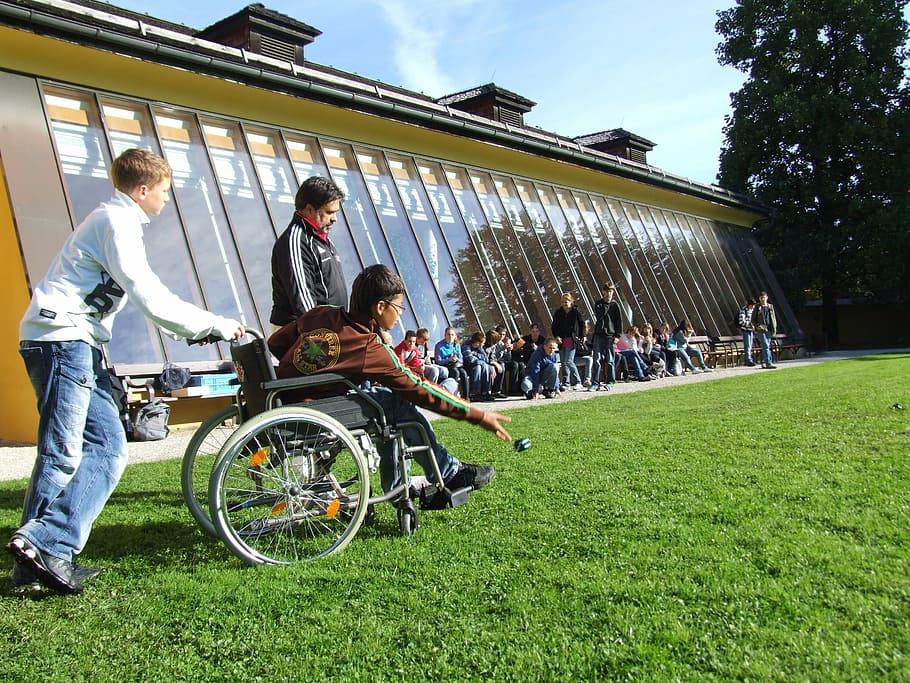It may come as a surprise to some people when they suddenly find their Social Security Disability benefits cut off. There are many reasons why this may happen. Unfortunately, the vast majority of disability beneficiaries are unaware of these reasons.
There are a variety of reasons why your disability benefits may have been cut off. These include engaging in Substantial Gainful Activity (or SGA), not responding to the Social Security Administration (SSA), being incarcerated, turning 18, having an improvement in your medical condition, and many more.
Keep reading below as we describe more reasons why disability would be denied.
Reasons Why Disability Benefits May Have Been Cut Off
Following are eight reasons why your disability benefits may have been denied.
1. Getting Back to Work While Receiving SSDI
Social Security Disability Insurance (SSDI) recipients who go back to work may have their payments withdrawn if they are found to be engaging in Substantial Gainful Activity (SGA). In practice, this translates to working more than a few hours per week.
The amount you are paid is the most important consideration in deciding whether or not an activity at work counts as SGA. However, this is not a black-and-white issue. Social Security may consider your work activity to be SGA even if your earnings are below the SGA limit if you are working a lot.
There is a possible exemption to the SGA rule known as a Trial Work Period (TWP). The trial work term protects your SSDI benefits while you try to get back into the workforce. No matter how much money you make, working for up to nine months during your TWP won’t result in the termination of your SSDI payments.
If you are still working and earning more than the SGA limit when your TWP ends, Social Security will no longer deem you disabled and will terminate your SSDI benefits.
However, it is possible that they will not cease these benefits immediately. Social Security provides beneficiaries with more time in its “extended period of eligibility.”
2. Turning 65 Years Old
You cannot collect retirement and disability benefits from Social Security at the same time if you are receiving SSDI. When an SSDI recipient reaches full retirement age (often between 66 and 67 years old), their payments will end.
But don’t worry; you won’t lose your Social Security benefits because of this. Once you reach your full retirement age while receiving SSDI, your payments will be converted to retirement benefits. There will be no change in the amount, either.
3. Imprisonment or Institutionalization While Receiving SSDI
If you’ve been convicted of a felony and are serving time in jail, your disability payments will stop while you’re incarcerated. After 30 days in jail (without participation in a rehabilitation program), you will lose your Social Security Disability Insurance benefits until the end of the month in which you are released.
In addition, a felony conviction may result in the suspension of your benefits even if you are not sentenced to jail time. A misdemeanor conviction won’t affect your Social Security Disability Insurance benefits unless you spend a month or more in jail.
4. Continuing Disability Reviews (CDRs)
Your judge will schedule a date for a Continuing Disability Review (CDR) at some point throughout the process of evaluating your claim for disability benefits. The purpose of this review is to ascertain whether or not you continue to meet the criteria for receiving benefits. Usually, CDRs take place every three years, however how often SSDI will review your case depends on various factors.
During a CDR, the Social Security Administration will take into consideration and analyze all of the relevant medical and case information that you have provided.
The recommendation that they will most frequently give is to conduct another evaluation in approximately three years’ time. They also have the choice of asking an SSA-approved doctor to perform a medical examination.
If the court believes that your condition will recover more quickly than three years, your CDR hearing could be moved up to an earlier date.
In contrast, the judge has the discretion to postpone your CDR date by up to seven years if you are beyond the age of 50 or if you have a medical condition that is unlikely to improve.
5. Turning 18

If you are receiving dependent benefits based on the earnings record of another person, there are certain life events that can result in the termination of those benefits, including the following examples:
- shifting residence
- turning eighteen (or nineteen if still a high school student)
- getting married (under certain circumstances)
For instance, if your parents are getting Social Security Disability Insurance and you are receiving benefits based on their employment record, then your payments will normally terminate when you reach 18 or get married; however, there are some exceptions to this rule if you are also disabled.
Unlike with SSI, your spouse’s marriage won’t affect your ability to continue receiving SSDI payments if they are based on your own job and earnings record.
6. Non-Reachable Address
In order to keep receiving Social Security disability payments, you must be reachable by the Social Security Administration and comply with the SSA’s requirements.
For instance, if Social Security asks for new medical (or other) proof and you fail to respond or fail to deliver the needed documentation, your disability benefits could be terminated.
Your Social Security Disability Insurance or Supplemental Security Income (SSI) benefits will also be terminated if either Social Security is unable to identify you or the United States Postal Service (USPS) sends back your benefit checks.
If you provide Social Security with a current and accurate address, it is possible that your benefit payments will resume.
However, if you willfully disregard a Social Security request for information or otherwise refuse to cooperate with the organization, your Social Security Disability Insurance or Supplemental Security Income payments will stop for a year.
7. Beneficiary Passes Away
When a Social Security Disability Insurance or Supplemental Security Income recipient (also known as a “beneficiary”) dies, their benefits under either program will end.
Nevertheless, survivorship payments may be available if the deceased SSDI recipient left behind a living spouse, children, or even dependent parents.
8. Major Shifts in One’s Living Conditions
It is possible that moving into a nursing home, assisted living facility, or hospital will have an impact on your eligibility for SSI; however, this is something that is very dependent on the type of institution you move into as well as the length of time you spend there.
Your Supplemental Security Income benefits may be maintained if you are able to prove to Social Security that you will be hospitalized for a period of less than ninety days. It is important that you let Social Security know as quickly as possible about any changes that have occurred in your living situation.
In addition, a person’s disability payments will be terminated for the duration of their incarceration, and in some cases, a felony conviction, even if it does not result in a sentence of imprisonment, can result in the termination of these benefits.
SSI beneficiaries who have been imprisoned for a continuous period of at least a year will be required to reapply for benefits after they are finally allowed to leave jail or prison.
Restarting Benefits After a Medical Improvement
After an initial SSDI disability assessment, if your condition improves to the point where you can earn more than the SGA level ($1,470 in 2023 for non-blind individuals), you will no longer be eligible for SSDI benefits.
If you or your SSDI attorney provide fresh or updated medical proof demonstrating that your illness has worsened and once again stops you from making the income that is defined as SGA, then your benefits may be restored.
The documentation will be delivered to the Office of Disability Determination Services. It is required that the disability be either the same one that was documented in your initial SSDI application or one that is closely comparable.
An example of this would be a herniated disc that differs from the herniated disc that was mentioned in your initial application.
Restarting SSDI Benefits After Getting Back to Work

If your benefits were terminated because you got back to work and carried on working for an income higher than the SGA for a duration greater than the nine-month Trial Work Period (TWP), you are currently within the 36-month Extended Period of Eligibility (EPE).
In this case, you are eligible to resume receiving payments as soon as your original disability once again prevents you from retaining employment, bringing your earnings down below the SGA.
In the event that SSDI benefits were terminated as a result of your return to the workforce and it has been less than sixty months since you last received SSDI benefits, the recurrence of your disabling condition qualifies you to submit an application for Expedited Reinstatement (EXR), which will allow you to resume receiving SSDI benefits more quickly.
Restarting Payments After Death of Primary Beneficiary or Change in Address
When the primary beneficiary dies or there is a relocation that leads to the SSDI losing contact with the beneficiary, the SSA has little choice but to suspend payments. At the same time, it is able to settle these difficulties.
This can take anywhere from a few weeks to several months.
Even if payments are made via direct deposit, the government will stop disbursing benefits if it is unable to get trustworthy information regarding the individuals to whom payments should be made and the locations where payments should be sent.
In situations like these, the claimant or an authorized agent needs to get in touch with the Social Security Administration and inform them of the recipient’s new place of residence or the address of the newly recognized beneficiary so that the benefit payments can be restarted.
Should I Get an Attorney to Help Me with Social Security Disability Reinstatement?

During this stage of the process, it may be critical to have a Social Security Disability attorney with years of relevant experience by your side. An attorney’s assistance is invaluable while trying to understand and work inside the social security disability system.
Some of the benefits include:
Expertise
An attorney who focuses their practice on social security disability claims will have an extensive understanding of the relevant laws and how they relate to your individual case.
This information may prove to be of great use when it comes to filling out your application or presenting your appeal, thus guaranteeing that you receive the benefits to which you are entitled.
The average person, on the other hand, may not have this benefit available to them if they file without a lawyer and end up filing a form incorrectly.
Support
The SSDI application process can be scary and challenging to navigate alone. If you have legal representation on your side, you can be sure that you will receive the assistance you require.
This includes assistance with completing all relevant documentation, delivering expert testimony during the hearing, and ensuring that your rights are safeguarded in every manner possible.
Compassion
A Social Security Disability lawyer knows how crucial these benefits can be. It is often impossible for a person to continue living their life and satisfy their fundamental requirements without them.
If you hire an experienced attorney, they will put in a lot of effort to get you the most favorable outcome possible and to ensure that you are treated fairly and with respect throughout the entire legal process.
It is essential to have a thorough understanding of how complicated the system is, whether you or a loved one are contemplating submitting an application for social security disability benefits or are facing the possibility of having SSDI payments revoked.
If you want to protect your rights and keep getting the benefits you deserve, hiring a lawyer may be a good first step.
Conclusion
There are many reasons why your disability benefits may have been cut off. Luckily, you may be able to appeal this decision for Social Security Disability and start receiving your disability benefits again. Consider hiring a lawyer to ensure that the process goes smoothly.



10 Responses
Who can afford an attorney when on disability? I believe they charge by the hour, my mechanic gets $200 an hour, I’m sure the attorney want a bit more. They cut mine because a letter came back, I don’t believe them. I’ve been at the same address and getting their mail. I’m going to FOIA the dated letter.
Social Security Disability attorney fees are determined by Social Security, and we only get paid if we win your claim and you receive backpay benefits. We would be happy to see if you qualify. Please complete the contact form and one of our intake specialists will contact you.
I am in a situation with social security involving denial of reinstatement of benefits. The next step I’ve been inform is to file for reconsideration of benefits, but first I should consult with
a lawyer to complete the application before submitting to the Social Security Office. Also, can you list the lawyer(s) or legal representatives that can assist me during the informal meeting.
Unfortunately, most attorney offices would not assist with this type of situation. We would recommend that you reach out to your local legal aid society for assistance with any recommendations of someone that might be able to assist.
I am inquiring about personal injury case with a nursing home. Ineed to know do I have a case or do you handle cases retaining to a fall.
This is something we could potentially help you with. Someone will reach out to you!
Help…I’m the mother & payee of my son who became disabled just before turning 16. He receives disability due to sustaining a life long traumatic brain injury, (TBI).
My ex-husband, my son’s father passed away 7 yrs ago. My son is 38 now & has always required my care & assistance daily. This has been the situation since his accident 20 yrs ago. I’ve just recently learned that because, I am his full-time care taker, I may be eligible for survivors benefits from my ex-husband seeing as our son was permanently disabled @ 16 yrs of age & requires daily assistance. Is this true? I can’t begin to tell you how much hardship has been involved all these years because of not being able to work full-time & all the struggles we’ve endured without my steady income. I was also told there’s a program i qualify for that pays parents who are care givers? Is this also true?
If I am in fact eligible for any of this, I realize it most likely won’t be a large amount of income of course but, anything, & I do mean anything, would really help a lot.
Thank you so much for your time.
Respectfully ~
Victoria
We recommend contacting Social Security either by making an appointment at your local branch, or by calling their national helpline: 1 (800) 772-1213. They have a program to award survivor benefits to their children, which you may be eligible for since your son’s disability started before the age of 22.
Additionally, depending on your state, you may be able to apply for income as your child’s caregiver. To learn more, locate your nearest Aging and Disability Resource Center at https://eldercare.acl.gov/Public/Index.aspx or call 1-800-677-1116.
I had got my back time and I got back sick and had to be back off of work I am waiting on a reconsideration how long does that take and what is the process
The amount of time that the reconsideration process takes varies from case to case, but it’s typical that it takes at least 4 months after submitting the request, and 6 or more months isn’t uncommon.